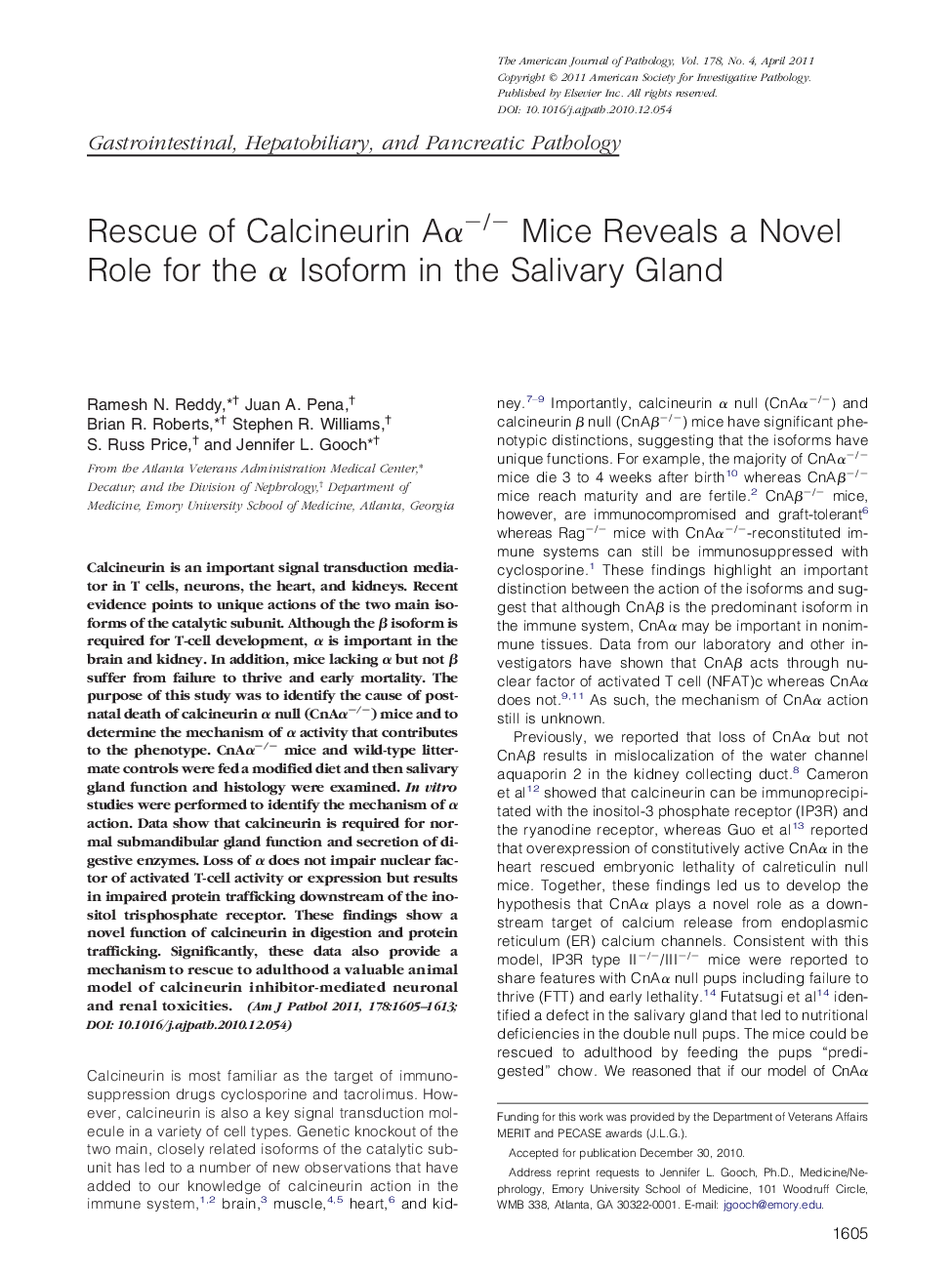| Article ID | Journal | Published Year | Pages | File Type |
|---|---|---|---|---|
| 5936037 | The American Journal of Pathology | 2011 | 9 Pages |
Abstract
Calcineurin is an important signal transduction mediator in T cells, neurons, the heart, and kidneys. Recent evidence points to unique actions of the two main isoforms of the catalytic subunit. Although the β isoform is required for T-cell development, α is important in the brain and kidney. In addition, mice lacking α but not β suffer from failure to thrive and early mortality. The purpose of this study was to identify the cause of postnatal death of calcineurin α null (CnAαâ/â) mice and to determine the mechanism of α activity that contributes to the phenotype. CnAαâ/â mice and wild-type littermate controls were fed a modified diet and then salivary gland function and histology were examined. In vitro studies were performed to identify the mechanism of α action. Data show that calcineurin is required for normal submandibular gland function and secretion of digestive enzymes. Loss of α does not impair nuclear factor of activated T-cell activity or expression but results in impaired protein trafficking downstream of the inositol trisphosphate receptor. These findings show a novel function of calcineurin in digestion and protein trafficking. Significantly, these data also provide a mechanism to rescue to adulthood a valuable animal model of calcineurin inhibitor-mediated neuronal and renal toxicities.
Related Topics
Health Sciences
Medicine and Dentistry
Cardiology and Cardiovascular Medicine
Authors
Ramesh N. Reddy, Juan A. Pena, Brian R. Roberts, Stephen R. Williams, S. Russ Price, Jennifer L. Gooch,
